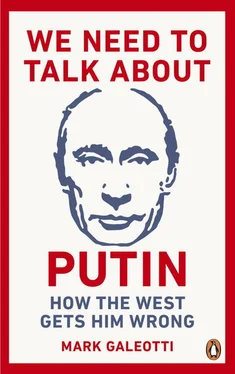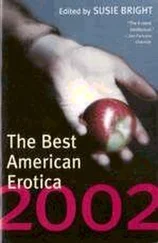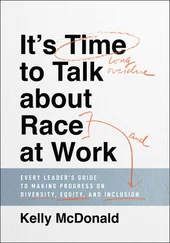Putin still identifies strongly with the so-called Chekists . Many of his closest allies are veterans of the KGB and its successors, and he retains close connections with the security agencies. He did not coin the phrase ‘There is no such thing as a former KGB officer,’ but he certainly lives it.
Of course, this experience clearly played a role in the development of his world view, but it does not explain it entirely and there are other seminal experiences to examine. There was his hard-knocks childhood in Leningrad, when he lived in a single room in a cramped and crowded communal apartment with neither a bath nor hot water. There young Vladimir got into judo and sambo, the Soviet military martial art, perhaps as a way of protecting himself or of finding a community. His early lessons in the streets and the ring certainly seem to have left a mark, impressing on him a belief that confidence and determination can make up for strength and wealth. In a television interview in 2018, for example, he drew a parallel between geopolitics and martial arts: when trying to explain how Russia could exert more global authority than the West anticipates, he noted that fighters who succeed are not only strong, and those who are defeated are not necessarily physically weak, but ‘something is missing. Either willpower or patience, or commitment or courage. Something wasn’t enough. Something was lacking.’ Childhood friends he made back then, such as the billionaire Rotenberg brothers (with whom he sparred) and the cellist Sergei Roldugin, are still important to him today. Perhaps – dipping into the shallowest of pop psychology – the marginal and insecure nature of his childhood also contributed to a later commitment to ensuring that he was safe and comfortable, and that no one had power over him.
After his time in the KGB, there were the anarchic 1990s, when the new Russia appeared to be spiralling into chaos and nobody knew if tomorrow’s pay cheque would come, and what it would buy. All the old values seemed lost and devalued, and the only new ones seemed to be to seize opportunities and make a fast buck when you could. These were the days when Putin started working at the mayor’s office in St Petersburg – his home city, its pre-Revolutionary name restored – and rose to become deputy mayor, before moving to Moscow. There, he was rapidly promoted, going from deputy head of the Presidential Property Management Directorate (1996–7) to deputy head and then first deputy head of the Presidential Administration (1997–8), head of the FSB (1998–9) and prime minister (1999). If before joining the KGB Putin was the rootless outsider youngster looking for the right gang to join, after it, he was part of a group of insiders who were taking full advantage of every opportunity those unsettled times threw up, notably the so-called Ozero Dacha Cooperative which I will discuss in Chapter 4.
These experiences left their marks on Putin as much as his time in the KGB. However, it is interesting to wonder how far before and after his service he has been chasing and idolising a fantasy image of the spooks rather than the reality. In his autobiography, First Person , he admits that before he joined the KGB, his picture of the agency came from spy stories, films and television programmes. The appeal was less the tradecraft or the nature of the missions as much as the sense that a spy really mattered. As he put it, ‘I was most amazed by how a small force, a single person, really, can accomplish something an entire army cannot. A single intelligence officer could rule over the fates of thousands of people. At least, that’s how I saw it.’
This thought that a single intelligence officer could rule over the fates of thousands., one might suggest, was what gave a scrappy kid from the wrong side of Leningrad an idea of how to get power and a sense of significance. The irony is that while he has, since then, become the lord of the spies, his actual career in the KGB was perhaps less distinguished than he might have liked.
After all, there were KGB officers and KGB officers . For all the artfully crafted mythology built around him, Putin was never some Soviet James Bond. He was at first posted in counter-intelligence, but in 1985, in part a result of his good command of German, he was sent to Dresden, in Communist East Germany. At this point, he transferred to the KGB’s First Chief Directorate, its foreign espionage division, though he never left the German Democratic Republic and seems largely to have been collating records and debriefing Soviet and East German citizens who travelled abroad. He filed reports for others to read, got plump on German beer (he admits to putting on 25 pounds), saved money to buy a car and generally lived a comfortable life. His was not exactly a glittering career, and when Viktor Kryuchkov, who had been head of the First Chief Directorate at the time, was later asked about Putin, he had to admit that he had never heard of him.
As a result of that posting, Putin missed the reformist excitement of the Soviet Union in the later 1980s, when Mikhail Gorbachev began to peel away the decades of repression and stagnation. Instead, his experience was of the once-disciplined German Democratic Republic falling apart around him, as Moscow essentially allowed the Germans to go their own way. While crowds besieged their offices, the KGB officers burned documents by the armful and pleaded for protection from the local Soviet garrison, but the Chekists were told they could do nothing without orders from Moscow, ‘and Moscow is silent’.
For Putin, the lesson seems not to have been that all empires fall, and the bloodier ones tend to fall harder. Nor even that the Soviet system had proven beyond reform. Rather, that the real problem of the USSR was that, in his own words, ‘it had a terminal disease without cure – a paralysis of power’. As president, he would demonstrate a determination to prove that the state retains both power and the will to use it. He has some of the tradecraft of the trained security service officer, especially when it comes to identifying and exploiting people’s vulnerabilities, but his experiences were from the late KGB, one driven not by dreams of Marxist-Leninist glory but corrupt self-interest. He did not witness the positive side of Gorbachev’s perestroika reform programme, just the cataclysmic outcomes, which he is clearly keen are not repeated.
He was also pretty mediocre at the job, so while he might look to the KGB’s successors as his natural allies and constituents, there is also an element of ‘wannabe-ness’ about this relationship. He has, for example, blessed the growth of what is almost a personality cult around Yuri Andropov, who was head of the KGB from 1967 to 1982 and General Secretary of the Communist Party for fifteen months in 1982–4, before succumbing to kidney failure. In 1999, Putin put flowers on Andropov’s grave to mark the eighty-fifth anniversary of his birth, and a year later he placed a plaque commemorating him on the building where he had lived. In 2004, he even saw that a statue to the man was erected in St Petersburg. Meanwhile, he periodically invokes Andropov’s memory as a brilliant intellect and an unswervingly ruthless patriot, and has encouraged an explosion in the number of articles and books about his life and times.
The irony is, I doubt Andropov would be as keen on Putin. He was a complex figure and certainly no bleeding heart – he sent dissidents to mental hospitals and presided over the crushing of both Hungary’s 1956 uprising and Czechoslovakia’s ‘Prague Spring’ in 1968 – but he was also an ascetic and a realist. Putin likes to pretend to be tough on corruption, but in practice it has become central to his whole style of rule, as I will discuss in Chapter 4. He also lives a life of opulent comfort, with palaces outside Moscow and on the Black Sea, and even exercises in a £2,500 tracksuit. Andropov, by contrast, lived an austere lifestyle, keeping the same flat even as he rose through the system; as a Russian television documentary put it, he had ‘one suit, one overcoat and his children and grandchildren rode the metro’. He also oversaw a bloody anti-corruption campaign that saw fifteen ministers sacked and embezzlers and profiteers tried and shot. Although he was a dyed-in-the-wool Marxist-Leninist, time and again he demonstrated an unwillingness to swallow propaganda unquestioningly and be satisfied with the comforting lies subordinates would feed their bosses. While he was an outstanding head of the KGB, he came to the agency as an outsider, a Party loyalist who would tame and modernise the thuggish murder machine the Soviets had inherited from Stalin. He never let himself be house-trained, and his experience meant that he knew how his people would attempt to doctor what they told him, even when they thought they were doing it in his own best interests.
Читать дальше












